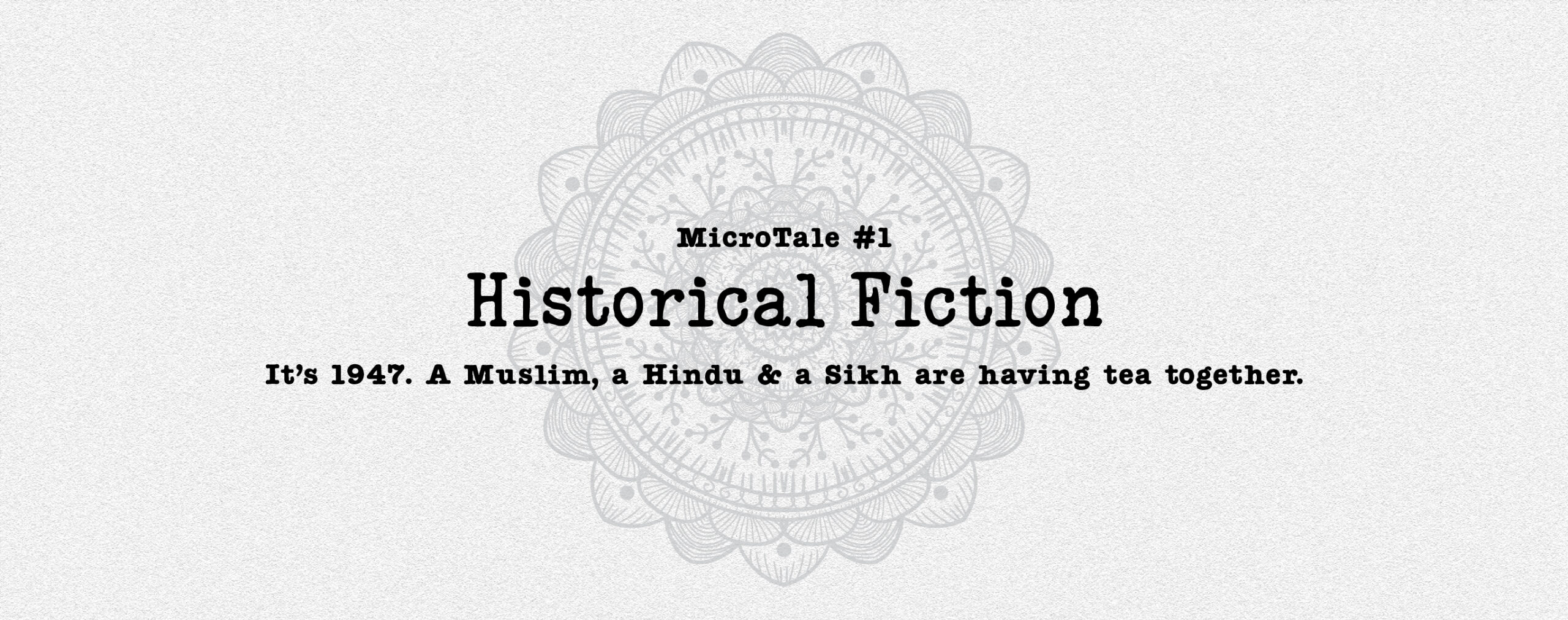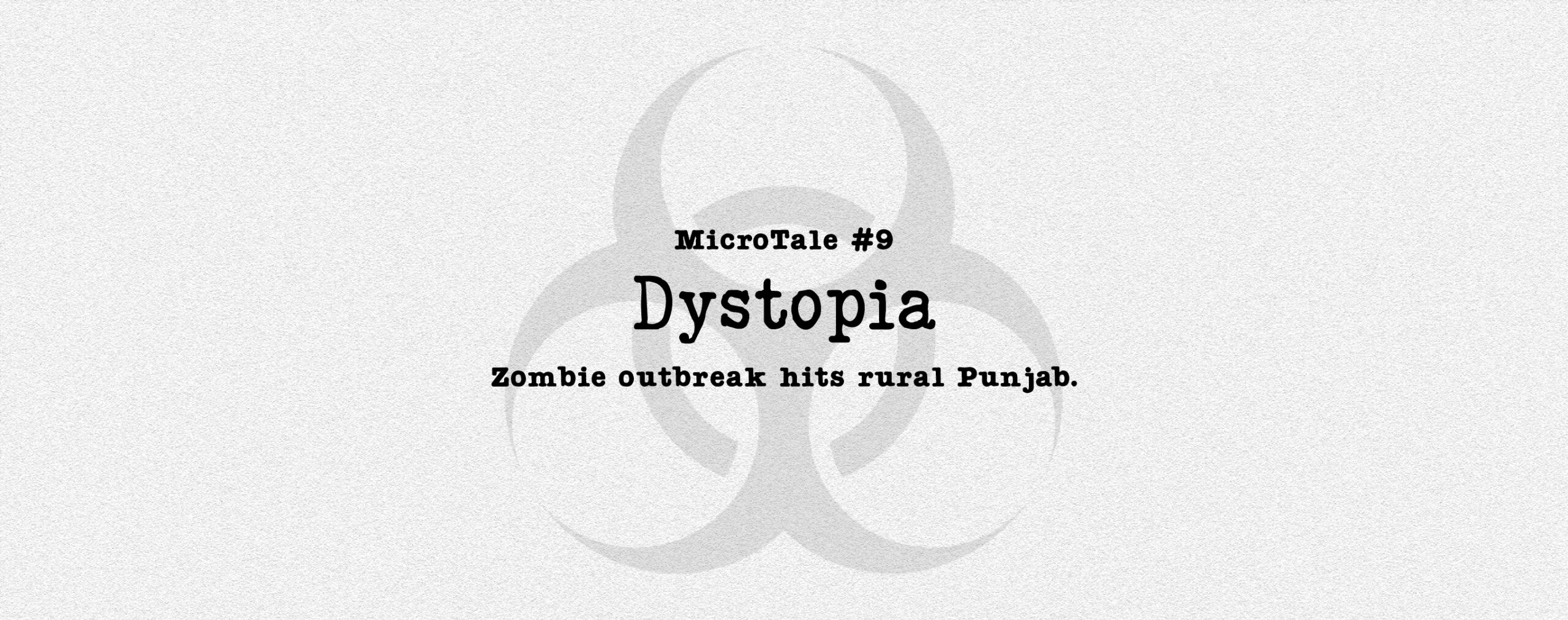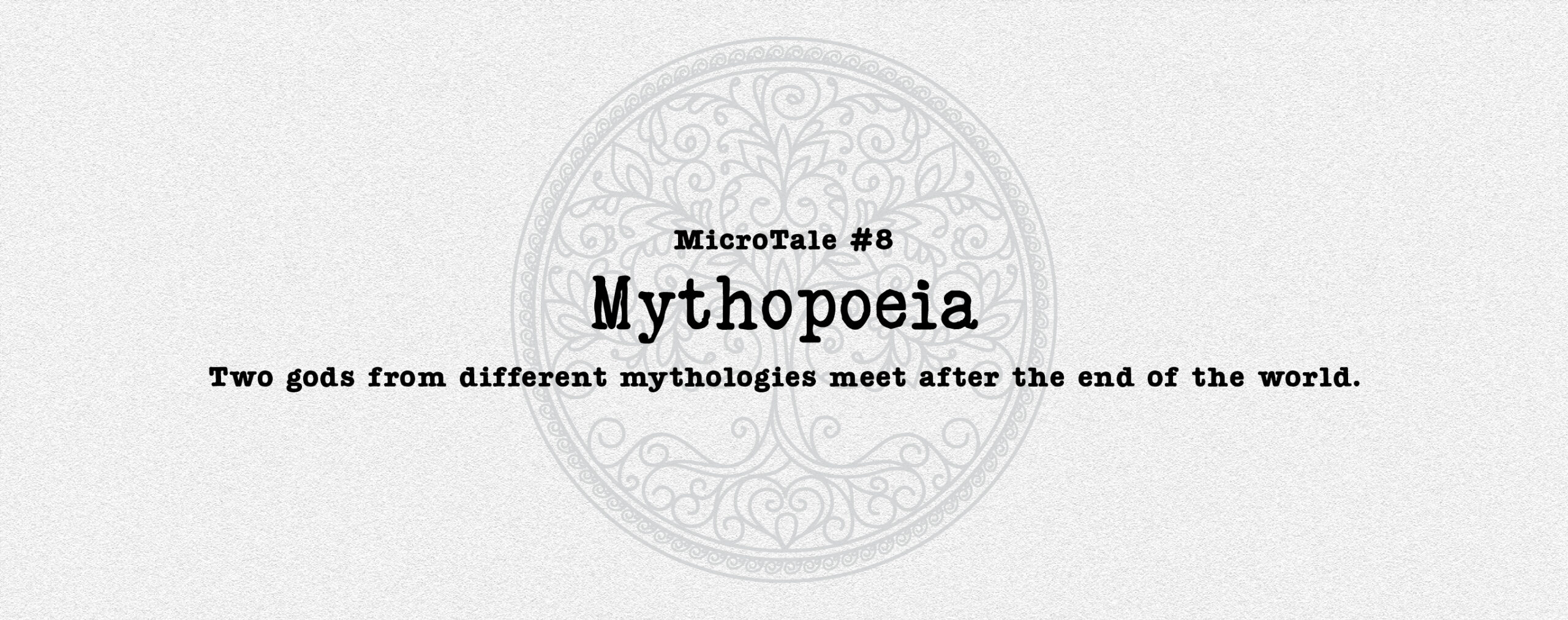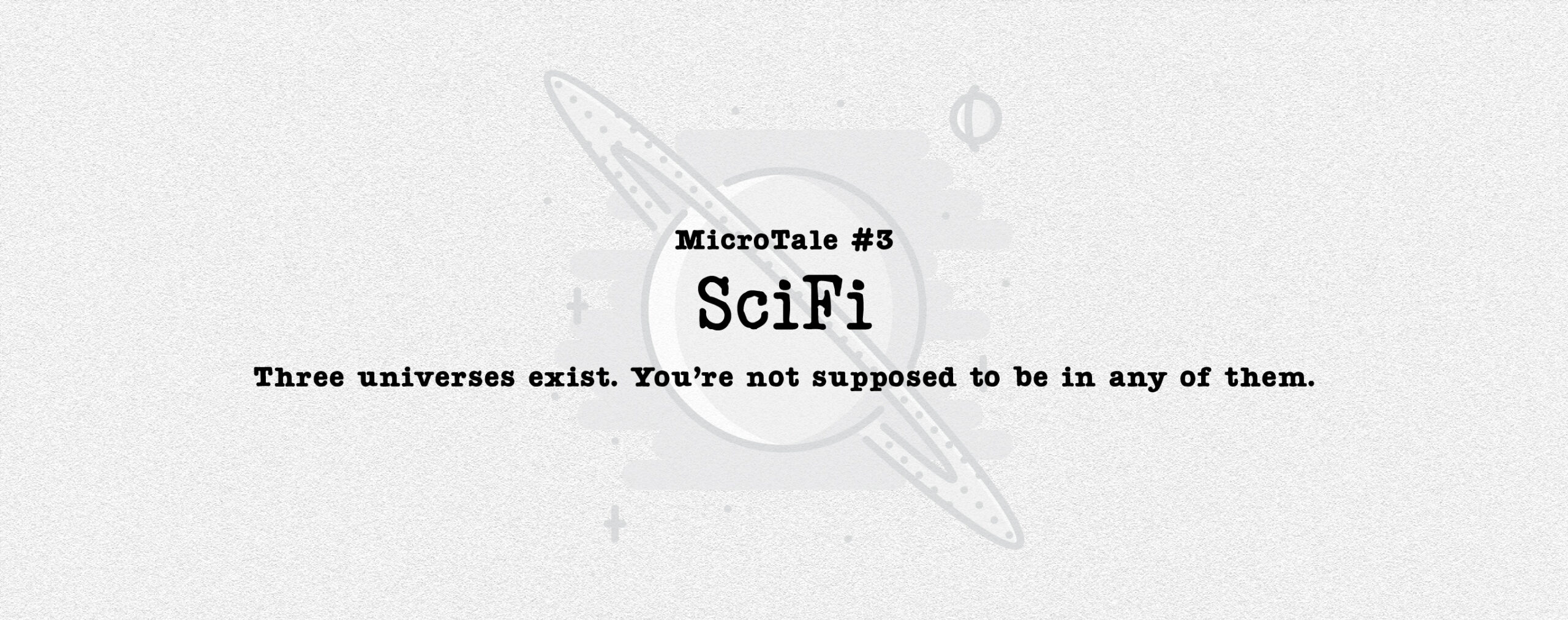The Bill Comes Due

The idea of a country dividing in two was as absurd as learning that your mother had grown a second head. It was akin to learning that the very earth beneath your feet had decided to shift, it had to be seen to be believed. Despite inhabiting these lands for millennia, nurturing it with their own blood and sweat, somehow the fate of his people always wound up in the hands of foreign invaders and conquerors. It was these thoughts that troubled Sukhveer’s mind but he was still looking forward to enjoying a steaming hot cup of chai at his favorite cafe with his friends.
Nothing calms the storms of their hearts more than a well timed mug of milky tea. Discovered by the Chinese, imported by the British, Indians had made tea truly their own in a way that almost reinvented the beverage, it was a salve for all their ills, in times of celebrations as well as times of sorrow, it was their constant companion. As the Cafe came in to view he was un-surprised to find his friends, having already seated themselves at their favorite table, both tending dutifully to their respective tobacco instruments.
Sukhveer’s personal philosophy claimed that a man’s character was closely tied to how he chose to smoke his tobacco. Hamid, the son of a factory owner and member of the Muslim League, was lovingly packing fine cut tobacco in to his ivory pipe. After bringing a lit match to the bowl, he carefully took the first few puffs which produced a thick white smoke. With a self-satisfied look Hamid leaned back in his chair, relaxing with an easy grace that only comes to those born wealthy or those who take no care to trouble themselves about the trivialities of the world.
Rajesh had no such qualms about the sophistry of smoking, even before Hamid had sprinkled the first grains of tobacco in his pipe, Rajesh had bitten off the end of his cigar and lit it up. For him tobacco was a necessity as much as a luxury and the act of smoking it contained no reverence.
Unlike his friends, he preferred to chew his tobacco instead of smoking it, he could faintly smell the earth from his fields as he stuffed the coarse wad of chew against his inner lip while sitting down, making sure that his Kirpan did not get wedged between the seat cushions, placing it neatly on his right thigh. An increasing number of young men were deciding to forgo wearing the ritual dagger but Sukhveer’s family had never been one to flaunt tradition so blatantly. His father held the firm belief that a man was naked without the Kirpan at his side. He received a warm welcome from his friends who already had a cup of tea ready for him.
The conversation flowed as freely as the tea over the course of the afternoon, the highlight being the imminent partition. Rajesh being the firebrand vehemently opposed the creation of a new state, pointing out that the time of Rajas and Nawabs was over,the masses could be the captains of their own collective destiny, regardless of religion a new unity would blossom ushering in an era of prosperity for all. When Hamid probed him about the place of the untouchables and lower castes in this hypothetical utopia, Rajesh became quite incensed and retorted by outlining the importance of traditions that had been established for generations and were necessary for social cohesion. Hamid took this opportunity to emphasize that the caste system was a uniquely Hindu invention and it would be nigh impossible for a Muslim to support such an unnatural system in good conscious. He went on to bring their attention to many more areas of life where the Hindu and Muslim mind were irrevocably different. Rajesh was quick to counter by admonishing the ideology of difference perpetrated by the Muslim League, stating that only a few rich landowners had decided on behalf of all Muslims that they wanted to break apart from the nation, this was intended to consolidate power and wealth in their own hands. How long could religion alone bind the masses when they didn’t even speak the same languages.
Sukhveer remained mostly silent during this entire discussion, merely verbalizing assent or dissent here and there. But behind his dark eyes a silent storm was brewing. He had never considered that so many of the world’s conventions could be challenged. For the first time in his life, he could see the cracks in the edifice of society. It was torture for him to grasp the idea that a huge multitude of his countrymen would simply pickup and leave their homes behind, over a matter of ideology. For a farmer like him, a man was tied to the land, it was a part of him. Leaving your land behind was akin to abandoning a part of your own body.
Things came to a head when it was time for their bill to arrive. Hamid told the waiter to bring a separate bill for him as he had ordered biscuits with his tea, it was only fair that the others not have to chip in for those. Rajesh was adamant that they had always asked for one bill and divided it equally, this time should be no different. Sukhveer had his reverie broken when they asked him to weigh in on the issue, both sides trying to convince him of the merits of their own argument. At first he was leaning towards Rajesh who insisted that one bill ensured that no single person would be overly burdened, they could order larger meals at a lesser cost. Hamid’s perspective was equally enticing because he mentioned that separate bills would allow everyone complete creative freedom over their culinary choices, your palette wouldn’t have to be limited by the tyranny of the majority. When Sukhveer brought up the notion that perhaps the bill should be split three ways instead of two, neither of his freinds were having it. Rajesh insisted that it would be pointless as he always ordered only tea, Hamid assented saying that a three way split could needlessly complicate things.
It was during this altercation that the cafe owner, Mr. Bigsby approached them. The portly gentleman was approaching sixty and still holding on to his English mannerisms despite leaving his homeland three decades ago. Upon being asked to weigh in on the bill payment crisis, he simply replied that he would be getting the money regardless of how many pockets it came out of, they were sternly reminded that he had to close shop soon. It was finally decided that the bill would be split in two parts, as Sukhveer’s order was simply not big enough to warrant it’s own bill. This left him as a passive observer, once again at the mercy of forces beyond his control.
The night was breezy but the heat was still an annoyance. As is common during those months, the weather was fickle but playful. Hands were shook and backs were clapped as they each went their own ways. Sukhveer was enjoying the sensation of perspiration evaporating from his forehead, it was still cool enough that his clothes did not stick to his body. His mind was awash with turbulent thoughts, his country had always been beset by external forces but perhaps the time had finally arrived for his people to take matters in their own hands. What he had always thought of as his country would soon vanish, so what did he really owe his loyalty to? Was it to be his religion? but then what of other Punajabis who spoke the same language but bowed their heads at the altar of another God. The answer gradually came to him as he left the city behind, walking towards his cottage.
At the edge of verdant wheat fields he gazed upon the LAND, his land… no, their land, it had borne them and their ancestors as it would continue to nourish them and their children. Both his friends had some good ideas, a nation could be governed from within but this did not have to come at the expense of forgoing traditions. Especially not by abandoning your land. As he walked, his hand drifted towards the hilt of his Kirpan. He was finally accepting the idea that his nation would be gone soon, a great dagger would cleave it’s breast and something new would be born. One of those things would be the cradle for their future, it would have to be nursed like a sapling. As he tightened his grip on the handle his pace quickened. A farmer knew how to harvest the bounty of the earth, to grow this future, the land would have to be fed the blood of those who would dare defy it, the moonlight was glinting dangerously off the blade of his dagger.



Recent Comments